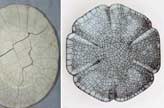Books
An author who confronts our demons
Updated: 2011-08-05 08:00
By Liu Jun (China Daily)
It's dusk and Tuola the bear king makes his way down the mountain and arrives at a Lisu ethnic group village in Yunnan province.
When the villagers wake, they are thrilled. Instead of sending dogs to chase the bear away, they offer Tuola honeyed corn wine. As soon as the drunk bear falls asleep, they crowd around him, not to kill, but to clean his fur of flees and admire his physique.
With a mattress bound on two poles, the strongest young men of the village carry the bear up the mountain, which involves cutting a way through the bamboo grove and crawling over a precarious bridge.
The rest of the clan happily gather for a feast of wine and goat, a happy ending to a triennial event that celebrates the Lisu's legendary bond with what they believe to be their bear-forefather.
Yunnan writer Cun Wenxue grabs readers by the throat and thrusts them into the mountain-locked life of the Lisu people on page one of his novel Biluo Snow Mountain. No wonder a film based on it won four awards at the Shanghai International Film Festival in 2010.
In recent years, more writers with an ethnic background have emerged on the country's literary scene. Though many of them write in Chinese as opposed to their ethnic language, their narration nonetheless offers a different angle to look at some of the grave issues plaguing contemporary society.
Hani, an ethnic group of just over 1.2 million people in Yunnan province, has turned out some noteworthy writers. Among them, 59-year-old Cun Wenxue debuted in the early 1980s and has published a number of novels about ethnic groups.
Both of Cun's acclaimed novels Biluo Snow Mountain and Animal Spirit serve as metaphors of human history. The ever-growing need for material gain pollutes innocent minds, leading to irrevocable conflicts that leave both man and nature devastated.
Meanwhile, at a secluded Lisu village, the young chief is desperate to move to a more habitable place. Perched on a slope, the whole village could be washed into the valley hundreds of meters below by rain-triggered landslides.
Only capable young men can glide across a rope hanging above the river. Children can't go to school, patients can't get treatment, no sane women would marry into the village.
The author's imagination seems to dry up as he describes the ravenous officials who answer the village chief's petition with demands for rare orchids, delicious pheasants and eventually, bears' paws.
Like the characters in his works, the author doesn't understand this greed of the outside world and explains it in stark terms, in contrast to the richly colorful world of the mountains, the real-life hometown of the author.
Animal Spirit is superior to Biluo Snow Mountain, it displays more eloquence, especially with the folk songs that elevate the Hani people's heroic spirit and long history - something the author grew up with.
Unlike the village head in Biluo who seeks to improve his fellow kinsmen's life, the hunter Sipiao in Animal Spirit is lost in his pursuit of a better life.
To become a hunter, teenage Sipiao is left near a giant tree in the heart of the forest in order to hunt down his first prey. But this primitive hunting life soon ends with the arrival of the loggers and miners who promise Sipiao powerful rifles in exchange for wild animals.
Like a child armed with the latest weapon, Sipiao shoots down any animal that crosses his path before a wild ox takes him down.
This novel reminds one of Japanese animation master Hayao Miyazaki's epic film Princess Mononoke, particularly in the conflicts between enraged animals and the armed hunters. If only some talented producer could see this.
If you are looking for an exotic experience from Cun's novels, you might be thrilled in the beginning. But be warned that you could get very uncomfortable as the author forces you to think a bit harder: Should we really reach so hard for modernization and drag everyone down into the abyss with us?
China Daily

Specials

Space race
Homebuyers are learning the hard facts of supply and demand: too many cars and too few parking spaces.

Micro blogs popular
In the aftermath of the train crash, more than 20 million micro-bloggers demonstrated power.

Ancient plate broken
An ancient porcelain plate that was accidentally destroyed was an invaluable part of the Palace Museum's collection but not the best piece of its type.